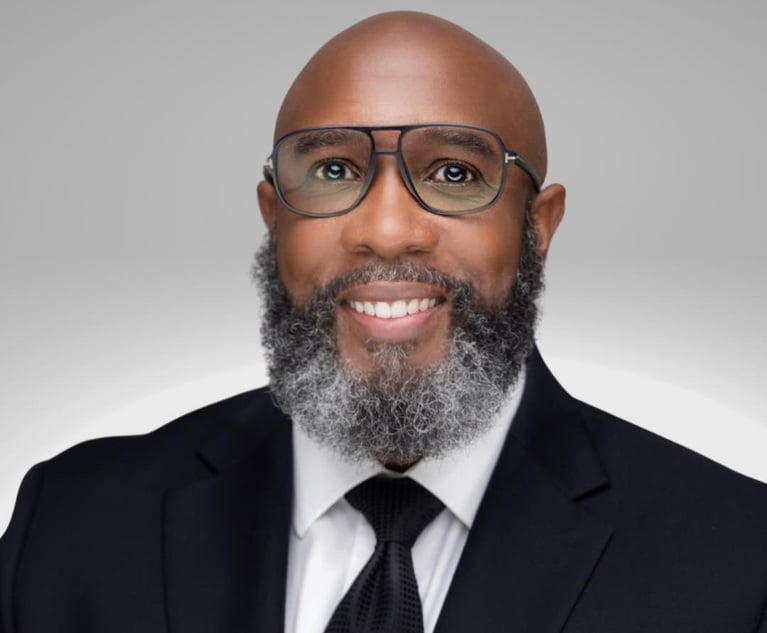Grace Robson Channels Her Fierce Work Ethic and Love of Law Into Pro Bono Work
"When you have a question, or clients are disagreeing and contentious, Grace is the person I would want on the other side of a case," said Patricia Redmond, a shareholder at Stearns Weaver Miller Weissler Alhadeff & Sitterson.
August 23, 2018 at 03:50 PM
7 minute read
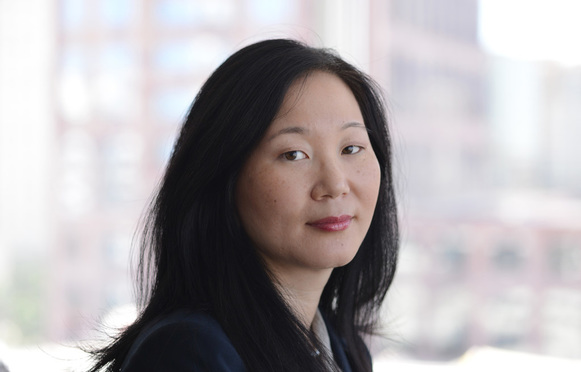 Grace Robson, partner with Markowitz Ringel Trusty + Hartog. Photo: Melanie Bell/ALM
Grace Robson, partner with Markowitz Ringel Trusty + Hartog. Photo: Melanie Bell/ALM
Bankruptcy attorney Grace Robson is well-acquainted with the value of hard work.
Growing up in Long Island, the Fort Lauderdale-based lawyer and partner at Markowitz Ringel Trusty & Hartog watched as her parents — both Korean expatriates — worked at their family-owned dry cleaning store to eke out a living for Robson and her brother.
“My parents were always working very hard,” Robson told the Daily Business Review, noting that she didn't see them much and spent a considerable amount of time with her grandmother. As a “young, first-generation child from a family of immigrants from Korea,” Robson said her family instilled in her the value of putting her back into all her endeavors from a very early age, even if she didn't realize it at the time.
“I probably didn't appreciate it as much until I started working with them when I was probably 12 or 13,” Robson recounted. “I saw that sacrifices had to be made so that you could get by on a day-to-day basis.”
Robson's fascination with the law began while enrolled in a criminal justice course during her junior year of high school. While the class material was a far cry from her eventual career in bankruptcy and debtor-creditor relations, it awoke something in Robson, namely, a deeply held belief in the importance and value of a functioning legal system.
“I saw it as a profession where people were always looking to do the right thing. I saw it as justice. I always thought that education and the legal profession could be an equalizer for people who did not have the means or were not financially wealthy,” Robson said. “But you could always catch up and do well for yourself if you work hard, get a good education and do things the right way.”
Robson remained in her native New York for her studies, earning her undergraduate degree at State University of New York as well as her J.D. from Benjamin N. Cardozo School of Law. While at law school, she wrestled with whether she wanted to practice corporate law or become a litigation attorney.
It wouldn't be long before she was introduced to the idea of entering the world of bankruptcy law.
“I had a neighbor who was also a law student and a couple of years ahead of me, and she had said, 'Well, if you're not sure which one you prefer and you want to get experience doing both, you should look into bankruptcy because in bankruptcy you get to do transactional work and you get to do litigation,'” Robson recounted. “So I did an internship and clerked at a law firm doing that and I took the bankruptcy course. And once you get a little bit of bankruptcy, then you know you get into that.”
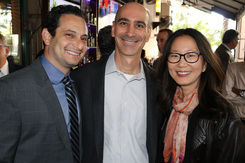 Brett Lieberman, attorney at Messana; Scott Grossman, shareholder, Greenberg Traurig; Grace Robson, partner, Markowitz Ringel Trusty & Hartog. Photo by J. Albert Diaz/ALM
Brett Lieberman, attorney at Messana; Scott Grossman, shareholder, Greenberg Traurig; Grace Robson, partner, Markowitz Ringel Trusty & Hartog. Photo by J. Albert Diaz/ALMAccording to her colleagues, the idealism and refined work ethic that first propelled Robson into her law career is still readily apparent. According to Patricia Redmond, a shareholder at Stearns Weaver Miller Weissler Alhadeff & Sitterson in Miami and adjunct professor at the University Of Miami School Of Law, one of the traits setting Robson apart from her peers is her affability, or grace.
“I think how she conducts herself personally and as a bankruptcy attorney is the same. If she tells you something you can count on it, and when she has a difficult circumstance she approaches it courteously and professionally,” Redmond said. “When you have a question, or clients are disagreeing and contentious, Grace is the person I would want on the other side of a case. With her you can make sure you'll get to a resolution.”
Redmond first met Robson while she was an associate at Berger Singerman. Redmond notes that the two of them served as opposing counsel on a couple of cases, an arrangement she describes as “adverse on a couple of matters.”
However, the timbre of their relationship changed when Robson approached Redmond about becoming more involved in pro bono work.
“About eight years ago Grace asked me to go to lunch and told me she wanted to be in a lot of organizations. She had an incredibly strong commitment to pro bono work and wanted to do more with the American Bar Association,” Redmond said.
Despite Robson's already considerable workload, Redmond said she proceeded to further immerse herself “in everything that's positive about being a lawyer in the Southern District of Florida.”
Among the superlative adjectives scattered in Robson's resume — “Best,” “Super,” “Top 50” and “Top 100” being among them — one phrase sticks out the most: pro bono. In addition to the numerous pro bono clients she's represented, Robson has served as the co-chair of the Pro Bono Services Subcommittee for the American Bar Association as well as the co-chair of the Pro Bono Committee for the Bankruptcy Bar Association of the Southern District of Florida.
Although Robson rose through the ranks and built her name as an expert on bankruptcy law, it's in her pro bono work where her reputation as an ardent and dedicated attorney has been solidified.
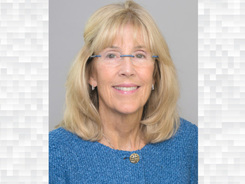 Patricia Ann Redmond, shareholder with Stearns Weaver Miller Weissler Alhadeff & Sitterson, in Miam and adjunct professor at the University of Miami School of Law. Courtesy photo
Patricia Ann Redmond, shareholder with Stearns Weaver Miller Weissler Alhadeff & Sitterson, in Miam and adjunct professor at the University of Miami School of Law. Courtesy photo“She never says no. Some lawyers have one pro bono case … but Grace takes lots of pro bono cases,” Redmond said. “Some people do pro bono because they're told that's their obligation as a lawyer… but Grace enjoys helping people have access to the court because they wouldn't [otherwise] have access to it.”
One of her most notable pro bono cases was also one with the most wide-ranging impact. In December 2016, Robson and managing partner Jerry Markowitz helped represent Switchboard of Miami, a long-running crisis hotline that operated as a not-for-profit. While Switchboard was facing bankruptcy, Robson, Markowitz and a team of attorneys operating pro bono were able to keep the organization's staff employed, and preserve resources and programs by transferring them to Jewish Community Services.
“We were able to keep [Switchboard] going by selling everything built into it to another not-for-profit so the community could continue to be served,” Robson said. “We all were more than willing to volunteer our time to help get that done.”
Looking ahead to the remainder of 2018, Robson anticipates pressing ahead with the same fervor.
“This year I'm going to the National Conference of Bankruptcy Judges like I do every year. We're putting on a pro bono panel on student loan discharge ability issues and how to best assist individuals with student loan debt to see if they qualify. And if so, to put them through the bankruptcy case system,” Robson said.
A big goal is to help clients navigate murky financial waters.
“It's nothing I can talk about publicly per se,” she said. “But [always] helping companies in distress.”
Grace E. Robson
Born: Aug. 17, 1972, Queens, New York
Spouse: Mark Robson
Children: Owen and Lucas
Education: Benjamin N. Cardozo School of Law, J.D., 1997; State University of New York, University Center at Albany, B.A., 1994
Experience: Partner, Markowitz Ringel Trusty + Hartog, 2011-present; Member, Hough Kubs & Robson, 2009-2011; Associate, Berger Singerman, 2001-2009
This content has been archived. It is available through our partners, LexisNexis® and Bloomberg Law.
To view this content, please continue to their sites.
Not a Lexis Subscriber?
Subscribe Now
Not a Bloomberg Law Subscriber?
Subscribe Now
NOT FOR REPRINT
© 2025 ALM Global, LLC, All Rights Reserved. Request academic re-use from www.copyright.com. All other uses, submit a request to [email protected]. For more information visit Asset & Logo Licensing.
You Might Like
View All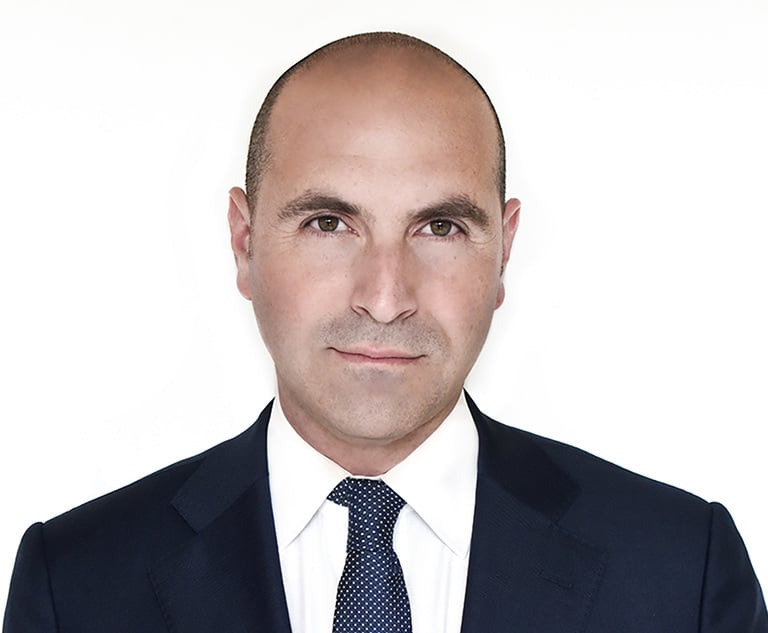
Growing Referral Network, Alternative Fees Have This Ex-Big Law’s Atty’s Bankruptcy Practice Soaring
5 minute read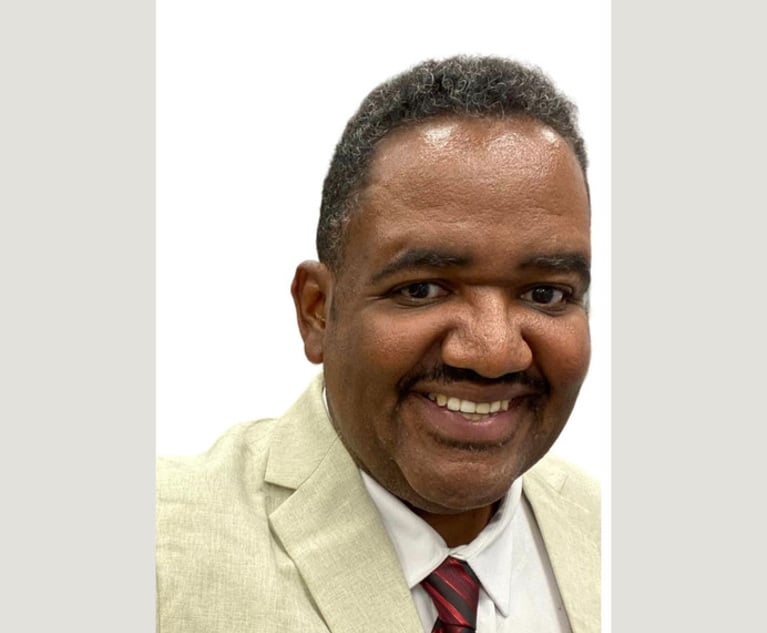
Against the Odds: Voters Elect Woody Clermont to the Broward Judicial Bench
4 minute read
Miami Civil Judge Myriam Lehr to Say Goodbye to the County Court Bench
4 minute readTrending Stories
- 1Public Notices/Calendars
- 2Monday Newspaper
- 3Judicial Ethics Opinion 24-98
- 4'It's Not Going to Be Pretty': PayPal, Capital One Face Novel Class Actions Over 'Poaching' Commissions Owed Influencers
- 511th Circuit Rejects Trump's Emergency Request as DOJ Prepares to Release Special Counsel's Final Report
Who Got The Work
Michael G. Bongiorno, Andrew Scott Dulberg and Elizabeth E. Driscoll from Wilmer Cutler Pickering Hale and Dorr have stepped in to represent Symbotic Inc., an A.I.-enabled technology platform that focuses on increasing supply chain efficiency, and other defendants in a pending shareholder derivative lawsuit. The case, filed Oct. 2 in Massachusetts District Court by the Brown Law Firm on behalf of Stephen Austen, accuses certain officers and directors of misleading investors in regard to Symbotic's potential for margin growth by failing to disclose that the company was not equipped to timely deploy its systems or manage expenses through project delays. The case, assigned to U.S. District Judge Nathaniel M. Gorton, is 1:24-cv-12522, Austen v. Cohen et al.
Who Got The Work
Edmund Polubinski and Marie Killmond of Davis Polk & Wardwell have entered appearances for data platform software development company MongoDB and other defendants in a pending shareholder derivative lawsuit. The action, filed Oct. 7 in New York Southern District Court by the Brown Law Firm, accuses the company's directors and/or officers of falsely expressing confidence in the company’s restructuring of its sales incentive plan and downplaying the severity of decreases in its upfront commitments. The case is 1:24-cv-07594, Roy v. Ittycheria et al.
Who Got The Work
Amy O. Bruchs and Kurt F. Ellison of Michael Best & Friedrich have entered appearances for Epic Systems Corp. in a pending employment discrimination lawsuit. The suit was filed Sept. 7 in Wisconsin Western District Court by Levine Eisberner LLC and Siri & Glimstad on behalf of a project manager who claims that he was wrongfully terminated after applying for a religious exemption to the defendant's COVID-19 vaccine mandate. The case, assigned to U.S. Magistrate Judge Anita Marie Boor, is 3:24-cv-00630, Secker, Nathan v. Epic Systems Corporation.
Who Got The Work
David X. Sullivan, Thomas J. Finn and Gregory A. Hall from McCarter & English have entered appearances for Sunrun Installation Services in a pending civil rights lawsuit. The complaint was filed Sept. 4 in Connecticut District Court by attorney Robert M. Berke on behalf of former employee George Edward Steins, who was arrested and charged with employing an unregistered home improvement salesperson. The complaint alleges that had Sunrun informed the Connecticut Department of Consumer Protection that the plaintiff's employment had ended in 2017 and that he no longer held Sunrun's home improvement contractor license, he would not have been hit with charges, which were dismissed in May 2024. The case, assigned to U.S. District Judge Jeffrey A. Meyer, is 3:24-cv-01423, Steins v. Sunrun, Inc. et al.
Who Got The Work
Greenberg Traurig shareholder Joshua L. Raskin has entered an appearance for boohoo.com UK Ltd. in a pending patent infringement lawsuit. The suit, filed Sept. 3 in Texas Eastern District Court by Rozier Hardt McDonough on behalf of Alto Dynamics, asserts five patents related to an online shopping platform. The case, assigned to U.S. District Judge Rodney Gilstrap, is 2:24-cv-00719, Alto Dynamics, LLC v. boohoo.com UK Limited.
Featured Firms
Law Offices of Gary Martin Hays & Associates, P.C.
(470) 294-1674
Law Offices of Mark E. Salomone
(857) 444-6468
Smith & Hassler
(713) 739-1250





